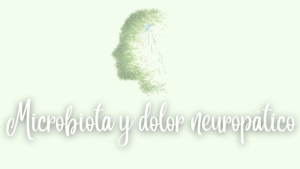
La microbiota intestinal tiene implicaciones en numerosos trastornos del Sistema Nervioso Central. Diversos estudios han investigado la posible contribución de la microbiota intestinal en las neuropatías y el dolor neuropático.
Todos concluyen que se producen cambios significativos en el entorno de la microbiota intestinal cuando existen patologías neuropáticas.
¿Qué es el dolor neuropático?
El dolor neuropático es el resultado de una disfunción o daño del sistema nervioso (periférico o central) en la estimulación de los receptores del dolor.
En este estado de patología nuestro cuerpo interpreta estímulos normales como dañinos y dolorosos.
El eje intestino-cerebro es bidireccional de manera que, daños y accidentes neuropáticos y cerebrovasculares producen una alteración de la microbiota, así como una alteración de la microbiota puede desencadenar dolor neuropático.
El dolor persistente también es una consecuencia de lesiones de la médula espinal y el cerebro y, en numerosas ocasiones, se asocia a una depresión y déficit cognitivo.
Mediante un trasplante de microbiota fecal o suplementación de la dieta se pueden corregir las anomalías en la microbiota.
El trasplante de microbiota fecal supone una mejora significativa del dolor y la depresión además de inducir efectos neuroprotectores a través de los efectos antiinflamatorios, consecuencia de los ácidos grasos de cadena corta.
También normaliza la disbiosis inducida por la lesión cerebral mejorando los resultados del accidente cardiovascular y rescatando los déficits neurológicos severos. Si se realiza un trasplante fecal joven supone un menor deterioro del comportamiento, así como una inflamación intestinal y cerebral reducida.
Muchos pacientes diabéticos sufren dolor neuropático como consecuencia de la diabetes. La dieta puede ejercer efectos neuroprotectores al regular la composición de la microbiota y sus metabolitos.
Así mismo, el consumo de probióticos mejora las respuestas inmunitarias inflamatorias.
En conclusión, dirigirse a la microbiota puede representar una estrategia para controlar los estados neuropáticos u otros trastornos del SNC que comparten sustratos neurobiológicos y vías neurooinflamatorias.